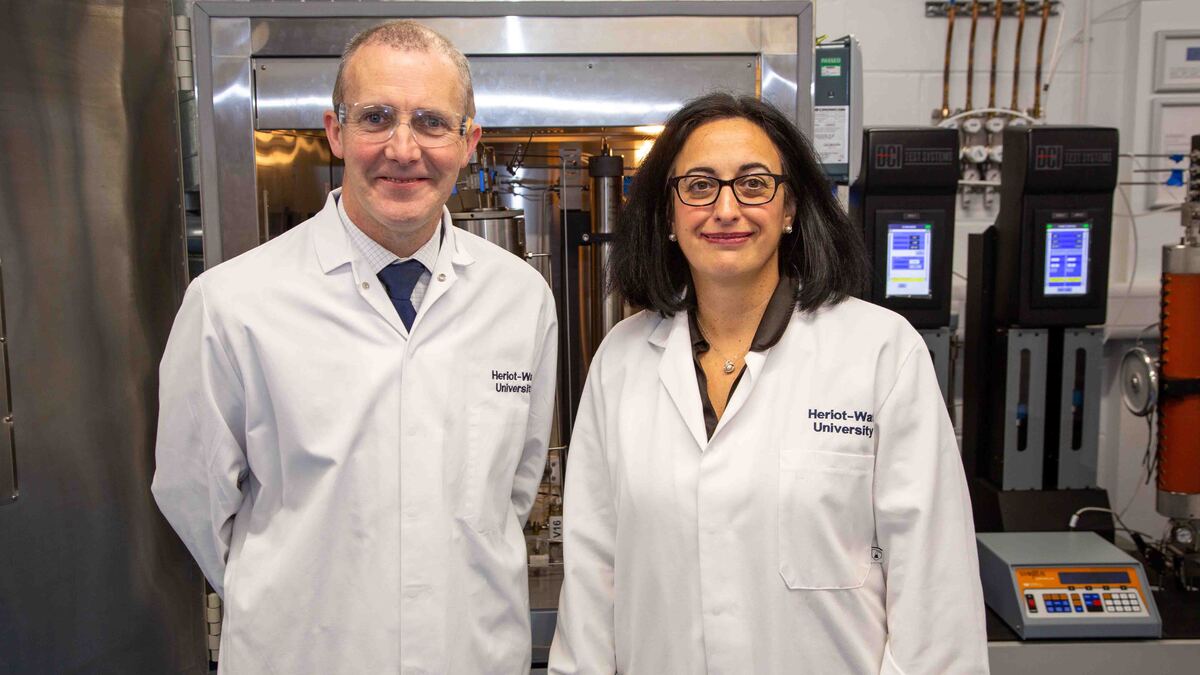Published:

Decarbonising Scotland’s energy-intensive industry, which is responsible for up to 15% of Scotland’s greenhouse gas emissions, creates important opportunities for green jobs and investment.
In a visit this week, the Cabinet Secretary for Net Zero, Energy and Transport, Michael Matheson met with the team at the Industrial Decarbonisation Research and Innovation Centre (IDRIC) to discuss how research and industry collaborations are developing innovative solutions for tackling emissions from sectors such as chemicals, cement, and other high-carbon manufacturing.
Backed by £20m from the Industrial Decarbonisation Challenge Fund and hosted by Heriot-Watt University, IDRIC brings together researchers from more than 30 universities with more than 200 partners and stakeholders to develop practical solutions for industrial decarbonisation.
Collaboration across more than 60 research projects advances low-carbon technologies, models the infrastructure and skills needed to scale these up, and addresses the social, economic and environmental challenges. Working closely with policymakers across the UK, IDRIC also supports the development of effective and evidence-based policy which can support this transition.
During the visit, Mr Matheson also toured the Research Centre for Carbon Solutions (RCCS) labs and he was able to see first-hand how world leading research on sustainable fuels, hydrogen and carbon capture and storage, is leading the way for a low carbon industrial future.
Energy-intensive industry is a core part of Scotland’s manufacturing base and provides important high-paid jobs. The Cabinet Secretary’s visit provided an opportunity to discuss how IDRIC’s growing knowledge base and collaborations can support the Scottish Government’s ambitious strategy for net zero and green growth.
In its draft Energy Strategy and Just Transition Plan, the Scottish Government sets out its ambition to decrease industrial emissions by 43% (from 2018 levels) by 2032, including from sites such as Grangemouth, and kickstart the production of low carbon hydrogen and carbon capture and storage to tackle residual emissions.
Michael Matheson MSP, Cabinet Secretary for Net Zero, Energy and Transport said: “The Scottish Government is committed to helping ensure a just transition to net-zero by 2045 and decarbonisation of industry is mission critical to achieving this. I was delighted to learn more about IDRIC’s work and discuss how the Centre’s expertise, evidence, and insight can be applied to accelerate and scale-up the decarbonisation of Scotland’s industry.”
Professor Mercedes Maroto-Valer, Champion and Director IDRIC said: “The exciting news is that we have the tools to transform industry and make it an engine of green growth. Innovation is progressing fast and with a joint effort by academia, industry and the public sector we can harness the opportunities from Scotland’s natural advantages and skills-base to realise the wealth of opportunities that net zero brings.”